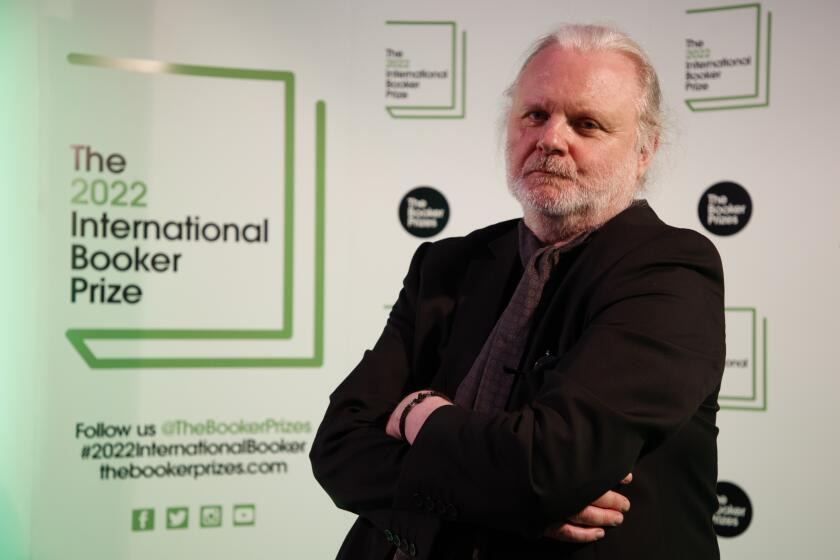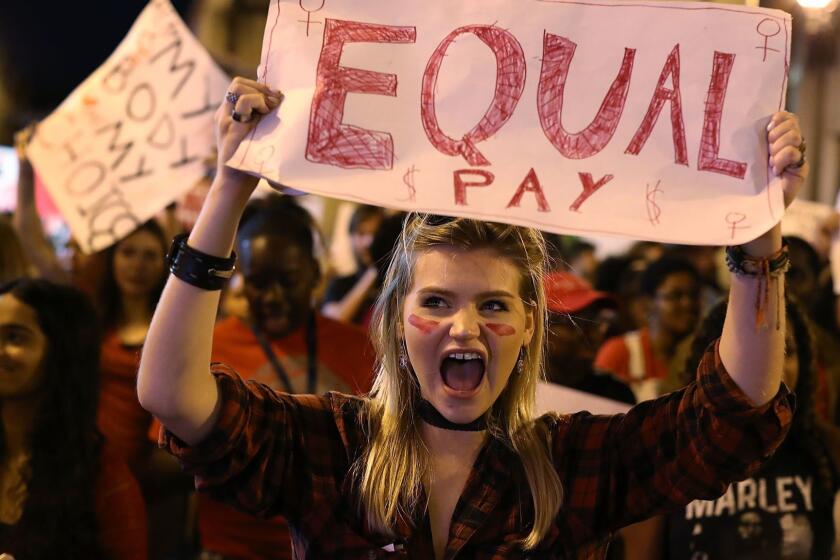Only 3rd woman to win Nobel in economics is honored for study of workplace gender gap

- Share via
STOCKHOLM — Claudia Goldin, an economist at Harvard University, won the Nobel Prize in economics Monday for advancing the understanding of the gender gap in the labor market.
The announcement went a tiny step to closing the Nobel committee’s own gender gap: Goldin is just the third woman to win the prize out of 93 economics laureates.
She has studied 200 years of women’s participation in the workplace, showing that despite continued economic growth, women’s pay did not continuously close in on men’s and that, despite women attaining higher levels of education than men, the income divide still exists.
“I’ve always been an optimist. But when I look at the numbers, I think something has happened in America. ... In the 1990s, our labor force participation rate for women was the highest in the world, and now it isn’t the highest in the world,” Goldin told the Associated Press.
“We have to step back and ask questions about piecing together the family, the home, together with the marketplace and employment,” she said.
Goldin does not offer solutions, but her research allows policymakers to tackle the entrenched problem, said Randi Hjalmarsson, a member of the prize committee.
Norwegian playwright and author Jon Fosse wins the Nobel Prize in literature for his ‘innovative plays and prose which give voice to the unsayable.’
“She explains the source of the gap, and how it’s changed over time and how it varies with the stage of development. And therefore, there is no single policy,” Hjalmarsson said. “So it’s a complicated policy question because if you don’t know the underlying reason, a certain policy won’t work.”
However, “by finally understanding the problem and calling it by the right name, we will be able to pave a better route forward,” Hjalmarsson said.
Goldin, 77, told the AP that what happens in people’s homes reflects what happens in the workplace, with women often taking jobs that allow them to be on call at home — work that often pays less.
“Ways in which we can even things out or to create more couple equity also leads to more gender equality,” she said.
American women don’t earn as much as men do, a persistent phenomenon that can’t be explained by disparities in education, opportunity or child-bearing.
Goldin had to become a bit of a sleuth as she sought to fill in missing data for her research, Hjalmarsson said. For parts of history, systematic labor market records did not exist, and, if they did, information about women was missing.
“So how did Claudia Goldin overcome this missing data challenge? She had to be a detective to dig through the archives to find novel data sources and creative ways to use them to measure these unknowns,” Hjalmarsson said.
In Goldin’s analysis, a woman’s role in the job market and the pay she receives aren’t influenced just by broad social and economic changes. They also are determined partly by her individual decisions about, for example, how much education to get.
Often, young girls make decisions about future work by looking at their own mothers’ participation, each generation “learning from the successes and failures of the preceding generation,” Hjalmarsson said.
Start your day right
Sign up for Essential California for the L.A. Times biggest news, features and recommendations in your inbox six days a week.
You may occasionally receive promotional content from the Los Angeles Times.
The process of evaluating prospects as times change “helps explain why change in labor market gender gaps has been so slow,” she said.
The economics prize was created in 1968 by Sweden’s central bank and is formally known as the Bank of Sweden Prize in Economic Sciences in Memory of Alfred Nobel.
Last year’s winners were former Federal Reserve Chair Ben Bernanke, Douglas W. Diamond and Philip Dybvig for their research into bank failures, which helped shape the U.S.’ aggressive response to the 2007-2008 financial crisis.
The prizes for medicine, physics, chemistry and literature were awarded last week, as was the Nobel Peace Prize, which went to imprisoned Iranian human rights activist Narges Mohammadi.
The prizes carry a cash award of 11 million Swedish kronor ($1 million). The money comes from a bequest left by the prize’s creator, Swedish inventor Alfred Nobel, who died in 1896.
The prize money was raised by 1 million kronor this year because of the plunging value of the Swedish currency.
More to Read
Sign up for Essential California
The most important California stories and recommendations in your inbox every morning.
You may occasionally receive promotional content from the Los Angeles Times.












